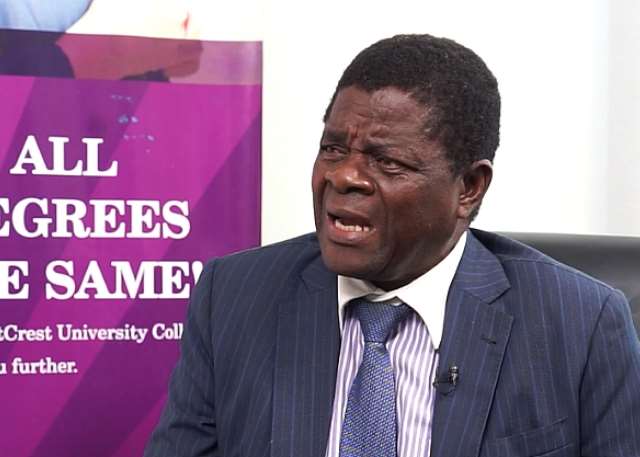The New Patriotic Party (NPP) in Ghana is grappling with a profound leadership vacuum, a crisis exacerbated by the passing of key figures who once steered the party’s direction. This void, according to legal scholar Kwaku Ansa Asare, has left the NPP fragmented and struggling to maintain a coherent political strategy, leading to actions that undermine constitutional processes. The party’s parliamentary minority, in particular, stands accused of acting out of desperation, resorting to disruptive tactics that reflect a lack of clear guidance and a desperate attempt to remain relevant in the national political landscape. This leadership deficiency manifests in the minority’s recent demands for President Mahama and Attorney General Ayine to publicly address comments made by suspended Chief Justice Gertrude Torkornoo, demands that Ansa Asare deems not only misguided but also unconstitutional.
The core of Ansa Asare’s argument rests on the established constitutional procedures for handling such matters. He emphasizes the President’s and Attorney General’s obligation to remain silent once a committee of inquiry has been established, stressing that any public pronouncements before the committee’s report would constitute a breach of the Constitution. He warns that succumbing to the minority’s pressure would violate the President’s sworn oath to uphold and defend the Constitution, setting a dangerous precedent for undermining due process. The minority’s actions, in Ansa Asare’s view, are a thinly veiled attempt to divert attention from their own internal struggles and project an image of political strength, even at the expense of constitutional integrity. Their clamor for public responses, he argues, serves only to create unnecessary controversy and distract from the ongoing legal review process.
Ansa Asare draws a parallel between the current situation and the perceived “bastardization” of the judiciary under the previous NPP administration led by former President Akufo-Addo. He suggests that the minority’s current conduct reflects a misguided attempt to rectify past wrongs, albeit through equally improper means. By demanding public pronouncements from the President and Attorney General, the minority seeks to circumvent established legal procedures and create a public spectacle, potentially triggering a constitutional crisis. This behavior, Ansa Asare contends, is not only ill-advised but also unworthy of serious consideration, likening it to the attention-seeking cries of a child. He urges the NPP to address its internal issues through proper channels, rather than resorting to disruptive tactics that threaten the country’s constitutional stability.
The heart of the matter, according to Ansa Asare, lies in respecting the Constitution and adhering to due process. The minority’s attempts to pressure the President and Attorney General into public statements are a clear deviation from these principles. He emphasizes the importance of allowing the established legal process to unfold without interference, arguing that resorting to public theatrics and political point-scoring undermines the integrity of the judicial system. The NPP, he suggests, should focus on internal reform and rebuilding its leadership structure rather than engaging in actions that could destabilize the country’s constitutional framework. He reiterates the importance of allowing the investigative committee to complete its work and submit its report before any public pronouncements are made, emphasizing that this is the only way to ensure that the matter is handled fairly and transparently.
The leadership vacuum within the NPP, according to Ansa Asare, is at the root of the party’s current struggles. The loss of influential figures has left the party without a clear direction, leading to fragmented decision-making and a tendency towards reactionary tactics. He contends that the minority’s actions in Parliament reflect this lack of leadership, manifesting in disruptive behavior and a disregard for constitutional processes. Their demands for public statements from the President and Attorney General are a prime example of this, as they attempt to circumvent established legal procedures and exert undue pressure on the executive branch. Ansa Asare stresses the need for the NPP to address this leadership crisis internally, focusing on rebuilding its internal structures and developing a coherent political strategy that respects constitutional principles.
In conclusion, Ansa Asare’s critique of the NPP highlights a deeper issue within the party: a leadership crisis that has left it adrift and prone to actions that undermine constitutional processes. The minority’s conduct in Parliament, he argues, is a symptom of this deeper malaise, reflecting a lack of clear guidance and a tendency towards disruptive tactics. He urges the NPP to focus on internal reform and rebuild its leadership structure, emphasizing the importance of respecting the Constitution and adhering to due process. The way forward, he insists, is not through public grandstanding and political maneuvering, but through a commitment to constitutional principles and a respect for the established legal framework. Only by addressing its internal leadership vacuum can the NPP hope to regain its footing and contribute constructively to the nation’s political discourse.


